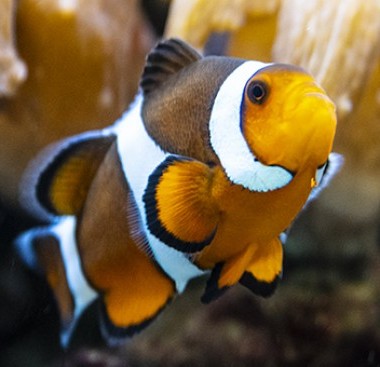NAIA URGES NO VOTE ON BOGUS ‘PUPPY PROTECT ACT’
By: Staff Date: 01/8/2012 Category: | Animal Legislation | Animal Rights vs Animal Welfare | Canine Issues |
Everyone is opposed to ‘puppy mills’ even when no definition of ‘puppy mill’ is offered. That knee-jerk reaction to an emotionally-loaded phrase is evident in the halls of the US Congress as senators and representatives consider two identical bills1 dubbed the ‘puppy protection act.’
It’s not the first time. For the past several years, groups that raise money by decrying the mass-production of puppies (and a few that complain about all dog breeding) have attempted to get Congress to amend the Animal Welfare Act1 to tighten regulations on breeding dogs. This time, as in the past, the bills are inadequate to the task of plugging loopholes in the AWA, and they have the potential to restrict all dog breeders who sell puppies as pets.
This time, unlike the past, the amendments drafted as the ‘puppy protection act’ have dozens of cosponsors, and the Humane Society of the US and other animal rights groups are pushing hard for passage. This time around, the legislation would allow USDA to regulate breeding by placing age and frequency restrictions on bitches, require an ‘engineering standard’ for puppy socialization that does not exist, and place a ‘three strikes and you’re out’ rule on regulated kennels and exhibitors. Far from improving conditions for animals in these facilities, the legislation will actually weaken enforcement by taking more inspection resources to focus on new requirements for kennels that already comply with the law, thus limiting the use of resources to seek out kennels that currently violate the AWA or avoid licensing altogether.
What is a puppy mill?
For years, activists have used puppy mills as fund-raising devices. Exposés have shown filthy, derelict, crowded kennels filled with sick dogs and operated by scruffy, uneducated owners and managers. The media gets much of its information about puppy mills from activist groups, which results in sensationalized reports that blur the lines between these squalid facilities and legally-run commercial kennels.
Activists also drag breed enthusiasts into the puppy mill picture by attacking the American Kennel Club for registering commercially-bred dogs and charging that the AWA covers all breeders, not just those who sell to retail outlets. After a long, drawn-out campaign, the Doris Day Animal League recently won a court decision ordering USDA to expand enforcement of the AWA to all US dog and cat breeders.2 USDA plans to appeal, but if the decision stands and the ‘puppy protection act’ passes as written, all breeders will be required to abide by its breeding restrictions and unscientific socialization standards.
Elements of the act
Like all animal welfare advocates, NAIA firmly condemns the substandard practices found in illegal kennels.4 We recognize the difference between legally-operating commercial kennels and ‘puppy mills’ and vigorously support improvements in commercial dog breeding. However, we strongly oppose this legislation because we believe its provisions are so misguided that passage would actually do more harm than good.
According to the NAIA Action Alert, the legislation entails: Policing breeding practices: The legislation contains a classic ‘camel’s nose under the tent’ provision that mandates when and how often dogs can be bred and expands federal regulation to a level that is both excessive and unenforceable. Such a combination produces greater potential for harassment than it does for animal welfare improvements. Most breeders have much higher standards than the ones called for in these bills, but any regulation of breeding age or frequency expands federal authority into breeding decisions that should be based on animal husbandry experience and veterinary advice, not political expedience, and opens the door to even more stringent requirements.
Engineering standard for socialization:
The legislation also mandates development of ‘engineering standards’ for puppy socialization. NAIA is a strong supporter of socialization and training for all puppies and dogs but opposes this provision because there are no scientifically validated standards for socialization at this time, and, even if they did exist, performance standards that allow flexibility in reaching the desired result are far more effective in achieving success. If the standards are to have value, we believe they should be developed by scientists with the assistance of recognized experts in the regulated community, not by animal welfare activists, and they should be researched, refined and properly tested before they are mandated by any legislative body.
License revocation: The legislation calls for a strict (three strikes and you’re out) license revocation policy without defining violations in terms of severity. Because the AWA and USDA regulations do not distinguish between serious violations and minor areas of noncompliance, this provision would slow animal welfare improvements and impede efforts to stop inhumane breeders, remove their animals and prevent them from breeding animals in the future.
What you can do
Ask your Senators and Representative to oppose S. 1478 and H.R. 3058. Contact information is included in the NAIA Action Alert on page 13.
If your Representative or Senators sit on the House or Senate Agriculture Committee (www.akc.org/love/dip/legislat/agcomms2.cfm), please ask them to stop these bills.
If your Senators or Representative are listed as cosponsors (www.akc.org/love/dip/legislat/ppacospons.cfm) of either bill, please ask them to withdraw their support for the reasons given above.
Write letters opposing these bills and ask your friends to do the same.
About The Author
All Authors Of This Article: | Patti Strand |












